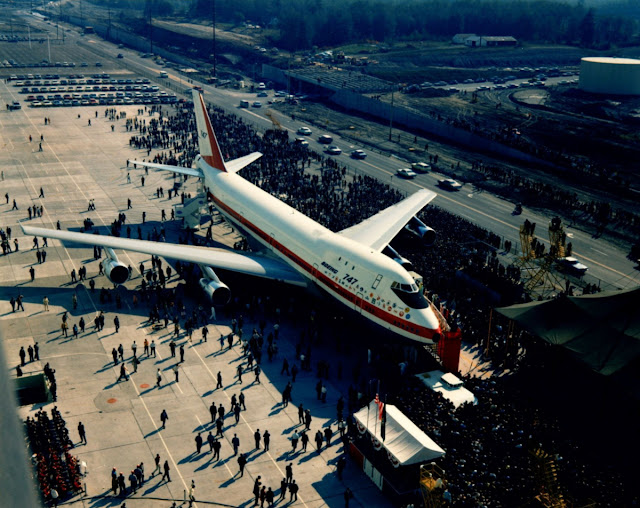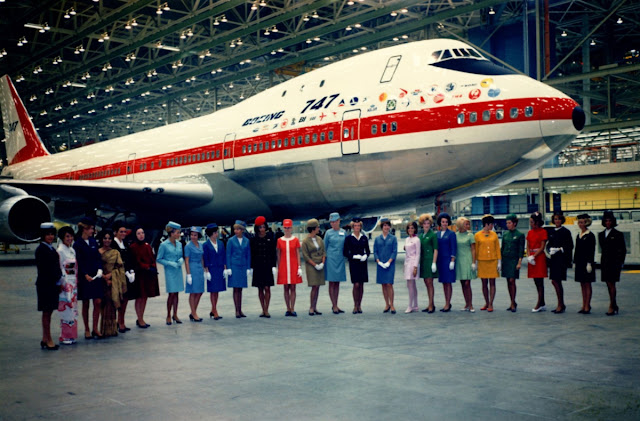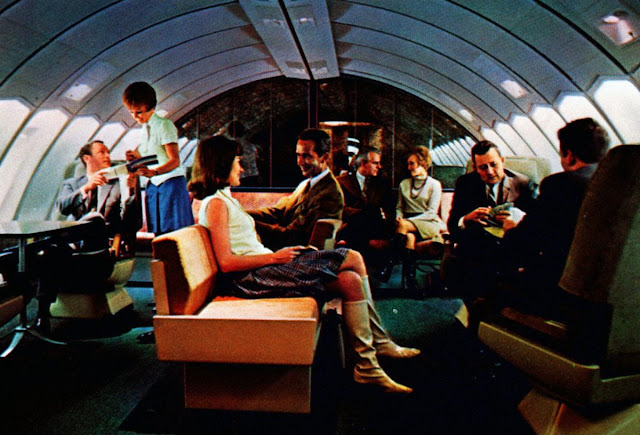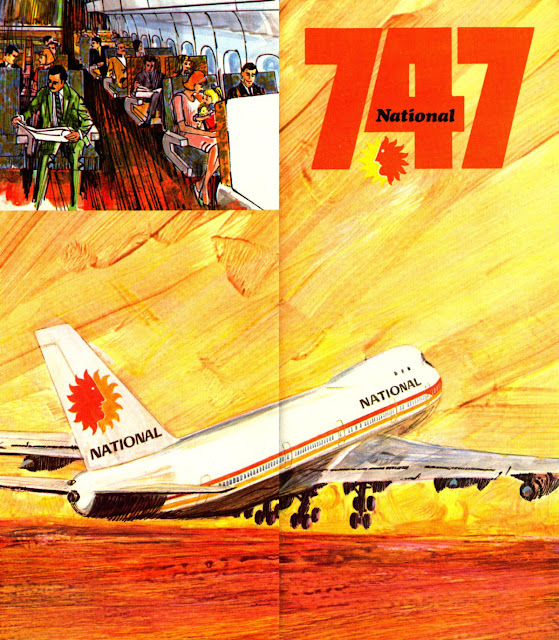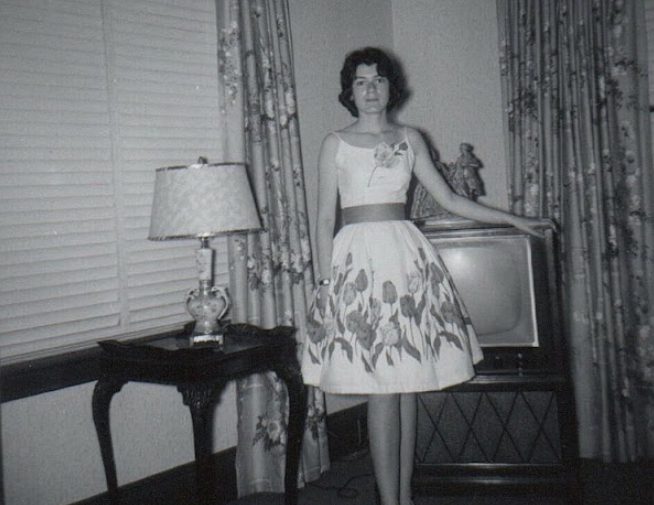Longer than the Wright brothers’ first flight, wider than a boulevard, and with a tail height as tall as a six-story building, the 747 was a revolution in aviation technology and the passenger experience when it entered service on January 22, 1970. With the first flight from New York to London, Pan Am’s Clipper Young America ushered in the jet age’s second phase: the era of wide body aircraft.
Developed by Boeing to maximize seat-mile and ton-mile revenues, the aircraft also extended the golden age of air travel as the 1960s came to a close. With increased capacity and lowered costs, the 747 helped make the air travel experience accessible to middle-class travelers.
Spacious interiors with luxury appointments and enhanced in-flight dining and entertainment experiences, available to first-class and economy passengers alike, served as marketing tools for the airlines that operated the 747. The jumbo jet came to occupy a permanent place in the popular imagination around the world and remains, decades later, a symbol that represents the glamour of air travel in a bygone age.
![]() The Boeing 747 Takes Off on Its First Scheduled Flight From New York to London
The Boeing 747 Takes Off on Its First Scheduled Flight From New York to London
